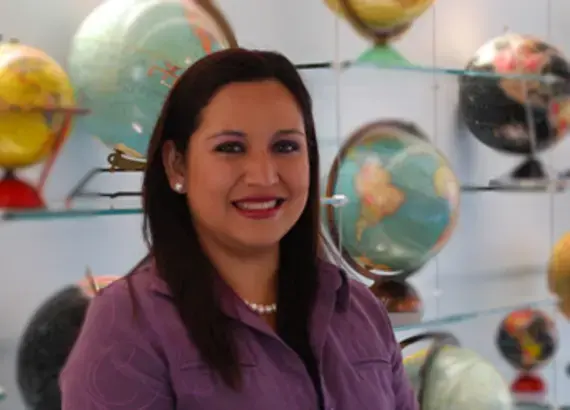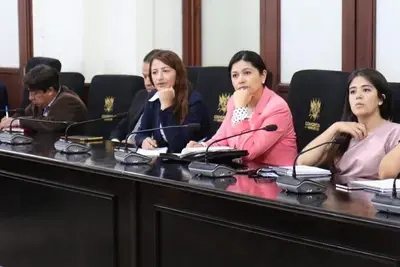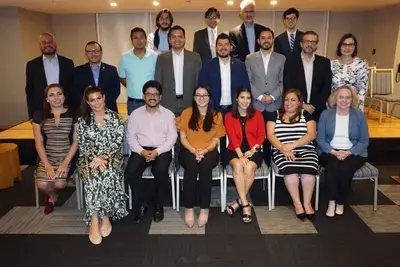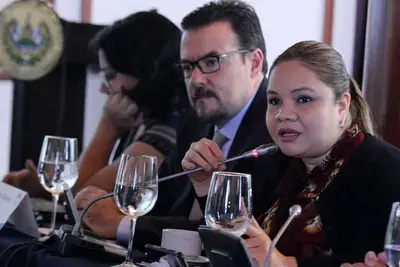
Success Story
2014 Andi Parhamovich Fellow Seeks to Help More Guatemalan Women Run for Office
Margarita Alonzo wasn’t always interested in politics. She began her career in Guatemala as a scientist, with an emphasis on biochemistry and microbiology.
“I have been a scientist all my life, since I was in school,” said Alonzo, 30.
In addition to being a professor at Del Valle de Guatemala University, where she teaches entrepreneurship, Alonzo has been working since 2007 as a patent examiner for the Intellectual Property Register at the Ministry of Economy.
The Ministry has given her a taste of public service, so she decided to get involved in politics.
In 2012 she joined a new political party, the Transparency, Order, Development, Opportunities and Security (TODOS) party led by Roberto Alejos, former president of Guatemala’s Congress.
Last year, she was named TODOS’ national secretary of science and technology and has developed an entrepreneurship program in the rural region of Huehuetenango that trains women, men and youth on entrepreneurship, how to create a business model and how to use social media for small businesses. She has also been active in efforts by her party and civil society organizations to advocate for electoral reforms to ensure women are better represented in local and national elections in 2015. Though her party has advocated for a 50/50 gender quota, Congress just passed a 30 percent quota — which would require parties to include at least 30 percent women on candidate lists for the legislature — which is awaiting court approval. “It’s a start,” Alonzo said.
“For the first time in our history, Guatemala has a vice president who is a woman,” she said. “But in the parliament only 18 of 158 are women, and it is worse for mayors. We only have seven elected women of 333 mayors, so we have a lot of work to do.”
Alonzo said cultural stereotypes and poverty play a big role in this gap, especially in rural areas.
“Little girls are not going to school because they have to be married because that’s the role they have to play -- just go to primary school and never get to university,” she said. “I think in Guatemala most [women] are not used to taking power and making decisions and I think women need to know how.”
With this in mind, she applied for NDI’s Andi Parhamovich Fellowship, an annual award that brings one woman from an NDI in-country office or local organization which has collaborated in NDI programs to Washington, D.C., for three months to conduct research for a project geared toward building democracy and increasing women’s political participation in her own country. The award was named after NDI staff member Andi Parhamovich, who was killed in Iraq in 2007.
The fellowship was open to all Guatemalan political parties , as well as NDI partner groups across Latin America and the Caribbean and Eurasia. Following a competitive review process, Alonzo won the global competition with a plan to develop a program to help more Guatemalan women run for office, get elected and govern. Her goal is to provide training to help women with the basics of politics and campaigning, from learning how to fundraise to communication and media management to designing public policy.
When the 30 percent quota is implemented, Alonzo said she wants women in Guatemala to be ready to run for office and win in 2015.
“We need women because more than 50 percent of the population is women and we have to be represented,” she said.
Alonzo arrived in Washington in March and is studying how U.S. and other political parties around the world operate — including how they engage women as candidates and voters — as well as how NDI involves women across its programs. Her project will include working sessions with women from TODOS as well as other political parties from all 23 electoral districts.
“There are a lot of women who can do great things if they are encouraged and empowered,” she said.
Read more:
Published April 1, 2014



